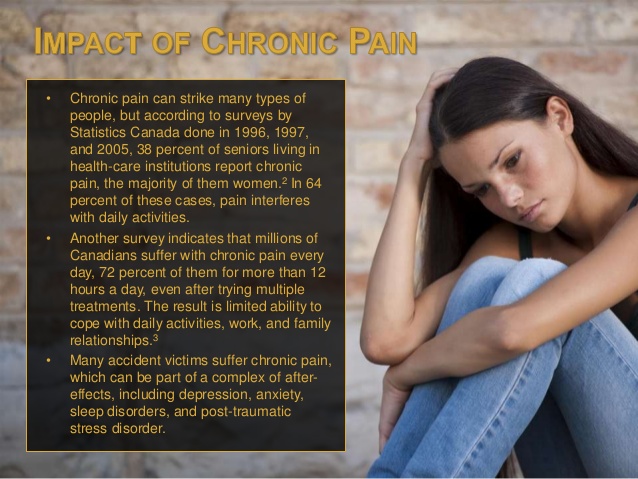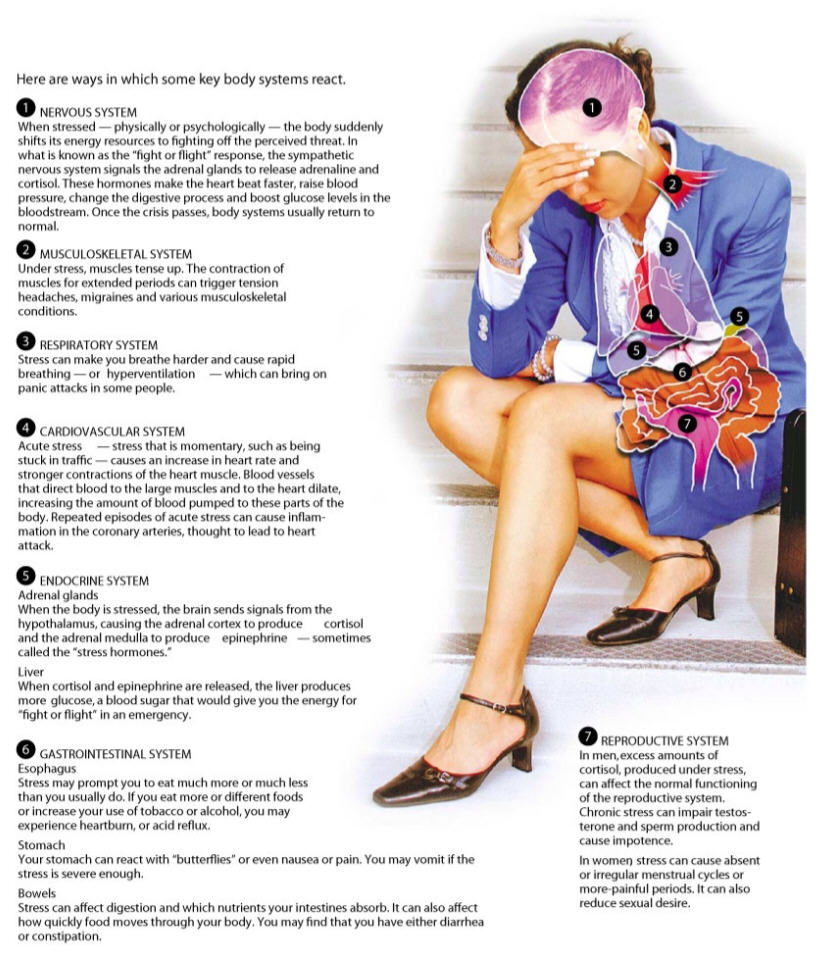
Chronic pain pertains to physical suffering, but most often than not, it also involves emotional distress. “Chronic pain also creates many stressors, which can lead to depression,” said Beverly Thorn, Ph.D. People who have chronic illnesses are more likely also to experience some psychological impacts brought about by their medical condition. Hence, everyone needs to be aware of the possible effects so that you would know how to address them appropriately. Check the enumeration below for the entire list:
Depression
A recent study shows that there is a connection between suffering from chronic pain and depression. “About 50 percent of people who have chronic pain also have depression,” according to Robert D. Kerns, Ph.D. Since a patient would regularly experience physical discomfort brought about by illness, one of the effects is a decrease in his functions. The existence of these limitations usually leads to sadness or grief. He would feel that he is already worthless, which can trigger depression. Unfortunately, when this depression is undiagnosed, the patient will suffer an increased level of pain.
“Depression is one of the leading causes of disability worldwide. It has been estimated that 1 in 5 people will experience depression during their lifetimes. About 85 percent of people experiencing a first episode of depression will relapse within the next 10 years,” this alarming fact came from Melanie Greenberg Ph.D.

Social Stigma
A person with a chronic illness is also more likely to feel that he could not handle the pain any longer. Thus, there is a high possibility that he would withdraw from his relationships with other people. The feeling of embarrassment would drive him to choose to be alone than to be surrounded by people. This stigma is also a driving factor in a person’s refusal to undergo medical treatment or refusal to see a pain doctor.
Guilt
A chronic pain patient also has a high tendency to experience guilt. Of course, people will always be there for him to help with all his medical needs. However, this assistance may be interpreted by the patients as discomfort on the part of other people. As such, he would be guilty every time he receives love and care from other individuals. In the long run, it would prevent the patient from asking for further help.

Paranoia
When a person has a chronic illness, one of the negative emotions that he would feel is paranoia. As you probably know by now, a paranoid individual can overthink about his situation. Therefore, a paranoid chronic pain patient may end up feeling fears all the time. He would be frightened that his case will never get better. For this reason, he may choose just to give up medications because he believes that no matter what he does, his situation will never improve.
Sadness
This can be somehow related to the feeling of depression. Nonetheless, it is crucial to emphasize the fact that depression is more severe compared to sadness. However, if this sadness or grief continues for an extended period, it may develop to depression. When this happens, the patient may become have suicidal tendencies. This is the primary reason why such a patient needs to be reminded that many people care for him. He needs to feel that a lot of individuals are looking forward to an improvement in his situation.
Dealing with someone who has chronic pain is quite challenging. Do not make things harder for them by acting weird or imposing specific methods for treatment. Instead, assure them that things will get better soon.